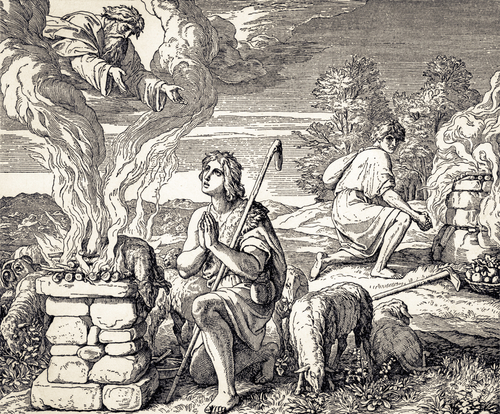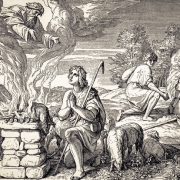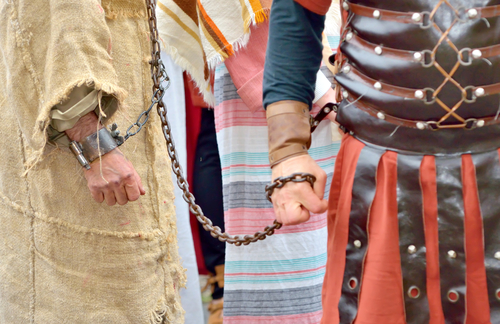Sacrifice that Pleases God
And in the process of time it came to pass that Cain brought an offering of the fruit of the ground to the LORD. Abel also brought of the firstborn of his flock and of their fat. And the LORD respected Abel and his offering, but He did not respect Cain and his offering. And Cain was very angry, and his countenance fell. (Genesis 4:3-5)
The two oldest sons of Adam and Eve were both farmers, but Abel kept flocks of sheep, and Cain grew things from the ground. Agriculture and the domestication of animals were practiced from the beginning. As a farmer, Cain brought to the LORD the product of his labor – the fruit of the ground. Abel brought something from his flock.

It’s entirely possible that Cain and Abel brought their offerings to the tree of life because cherubim guarded the way to that tree (Genesis 3:24), and cherubim seem to be associated with the dwelling place or meeting place with God (Exodus 25:10-22).
Their offerings were not both received by God. The LORD respected not only Abel’s offering, but Abel himself. The LORD did not receive (did not respect) Cain and did not respect his offering.
Many people have thought that God accepted Abel and his offering because it was a blood-offering, an animal from a flock (likely a sheep or a goat). In this thinking, Cain and his sacrifice were rejected because this offering of the fruit of the ground, an offering made without blood. In this thinking, only a blood sacrifice could please God.
This isn’t true at all. The offerings were not accepted or rejected based on blood, but on the basis of faith. The writer to the Hebrews clearly explained why the offering of Abel was accepted and the offering of Cain was rejected: By faith Abel offered up a more excellent sacrifice than Cain (Hebrews 11:4).
Cain’s offering was the effort of dead religion, while Abel’s offering was made in faith, in a desire to worship God in spirit and in truth. In the sacrificial system God later gave to Israel, grain offerings were acceptable before God (as seen in Leviticus 2), though not as an atonement for sin.
The offering of Cain was no doubt more pleasant to look at. A nice arrangement of produce looks better than a dead and dismembered lamb. But God was more concerned with faith in the heart than with artistic beauty.
Here, it was one lamb for a man. Later, at the Passover, it would be one lamb for a family. Then, at the Day of Atonement, it was one lamb for the nation. Finally, with Jesus, there was one Lamb who took away the sin of the world (John 1:29).
Jesus was and is God’s perfect sacrifice, and His sacrifice makes it possible for His people to bring their own sacrifice of praise, and to give themselves as living sacrifices to God. Receive His sacrifice and brings yours to God in faith.



















